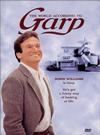 Yes, it is true. The book was much better than the movie.
Yes, it is true. The book was much better than the movie.GAAP stands for Generally Accepted Accounting Principles and are the rules by which the financial statements are determined. All GAAP are not created equal. European GAAP differs from US GAAP. I am not an accountant (thank goodness). But everyone should know some accounting basics. FASB is the board that sets GAAP standards in the US. Why am I boring you with this? Because a recent change in GAAP is impacting companies. Read these notes from OVTI's earnings release:
"Based on current trends, the Company expects fiscal first quarter 2007 revenue will be in the range of $135-$145 million. To be comparable with previously reported periods, excluding the estimated expense and related tax effects associated with stock-based compensation in accordance with FAS123®, the Company expects earnings will be in the range of $0.38 to $0.43 per share. The Company will adopt FAS123® in the July quarter, and expects GAAP earnings will be between $0.27 and $0.34 per share."
See the FAS123? (FASB Issues Final Accounting Rules) That new rule knocked down future qtr earnings about 10 cents. That is huge. My quick math says that is about $35m. FAS123 is the rule that forces companies to expense stock options. Ironically, the more your stock price goes up, the more expensive this expense.
Now estimating the cost of stock options for an individual is an extremely complicated exercise. It often uses a complex formula called Black-Scholes. I tried it once myself and it isn't for the faint of heart. For a company it is even more complicated.
- What happens when your stock price drops?
- Can it be "income"?
- What happens if EEs leave early and forgo part of their options?
- What about unvested options?




No comments:
Post a Comment